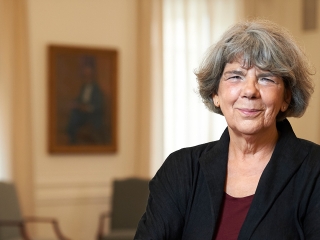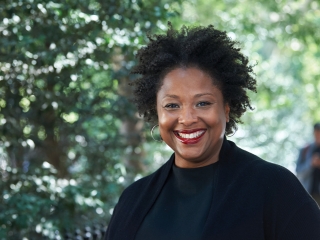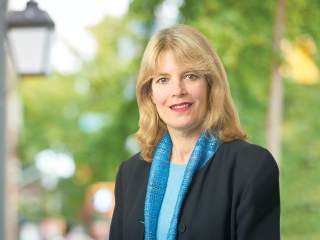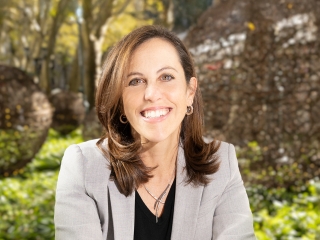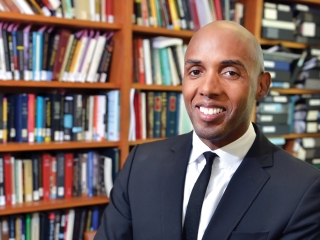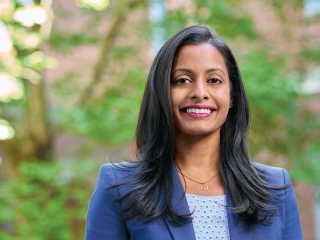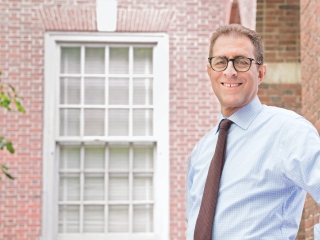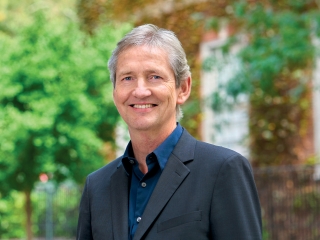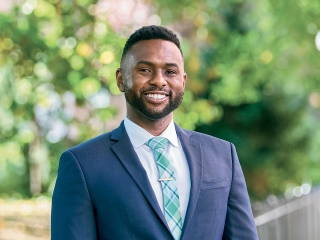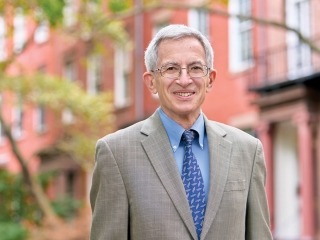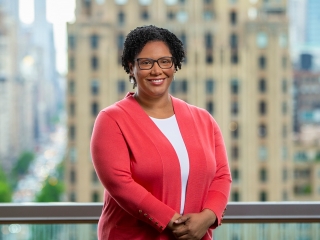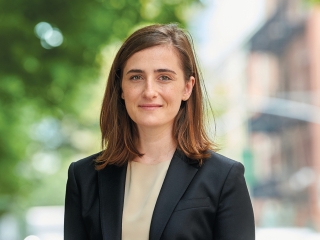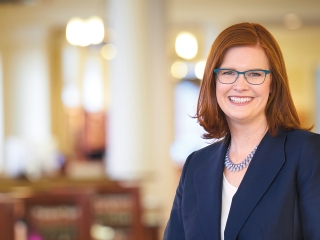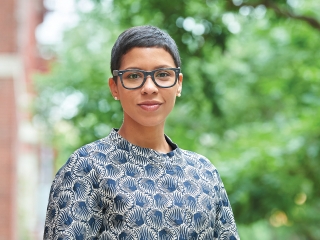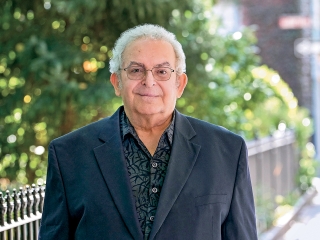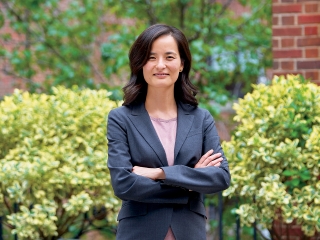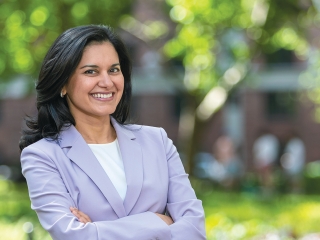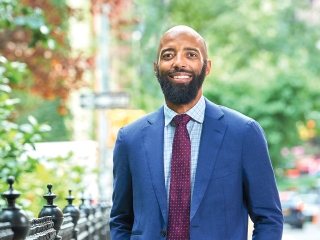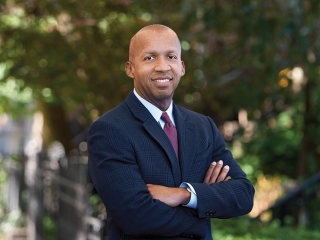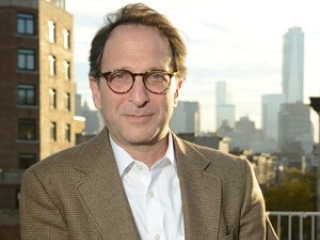Criminal Justice
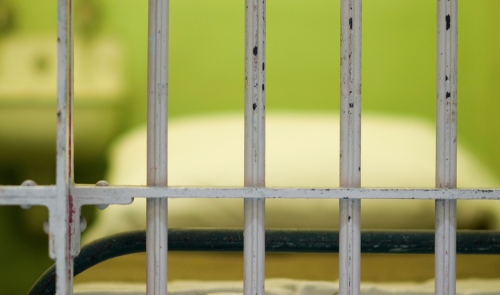
Overview
Criminal law at NYU is a rich discipline that begins with the first-year course in Criminal Law, which covers general principles of criminal responsibility. Top scholars who teach first-year Criminal Law include: Rachel Barkow,, and Erin Murphy.
Second-year students can take courses in evidence or criminal procedure. Most law schools have only one course in criminal procedure—at NYU, students can choose from four. Upper-level courses in substantive and procedural criminal law include Business Crime, Federal Criminal Law, and Juvenile Justice. And those interested in getting practical, hands-on training can take clinics such as Criminal Defense and Reentry Clinic.
Our faculty are leaders in their fields, from capital punishment to the administration of law. They explore critical issues in meting out justice through centers such as the Peter L. Zimroth Center on the Administration of Criminal Law, the Reiss Center on Law and Security, and the Brennan Center for Justice.
Throughout the year, NYU Law’s centers host lectures, conferences, and workshops and publish reports that contribute to some of the most urgent discussions surrounding criminal justice today. Students interested in constitutional rights, corporate misconduct, prosecution, national security, and other areas that intersect with criminal law have the opportunity to hear from and meet with legal academics, practitioners, and members of private and public institutions whose decisions impact the field:
- Brennan Center for Justice
The Brennan Center for Justice is a nonpartisan law and policy institute that seeks to improve our systems of democracy and justice.
- Peter L. Zimroth Center on the Administration of Criminal Law
The Peter L. Zimroth Center on the Administration of Criminal Law analyzes important issues of criminal law, particularly focusing on prosecutorial power and discretion. It pursues this mission in three main arenas: academia, the courts, and public policy debates.
- Reiss Center on Law and Security
The Reiss Center on Law and Security is a non-partisan multidisciplinary research institute established in 2003 to focus on cultivating an informed dialogue and conducting groundbreaking research on the vital legal, policy, and strategic questions that will shape the national security field for years to come.
- Just Security
Just Security is an online forum for the rigorous analysis of US national security law and policy that aims to promote principled and pragmatic solutions to national security problems that decision-makers face.
- Policing Project
The Policing Project is dedicated to strengthening policing through democratic governance. It is working with criminal justice experts, community members, the police, and many others to write model rules and policies for policing.
- Program on Corporate Compliance and Enforcement
The Program on Corporate Compliance and Enforcement is a law and policy program dedicated to developing a richer and deeper understanding of the causes of corporate misconduct and the nature of effective enforcement and compliance.
At NYU Law, students are encouraged to take advantage of all the Law School has to offer, from working directly with faculty on their research, to getting involved with our centers, to participating in clinics and student organizations. Students should consult with the Office of Career Services, which offers recruiting programs, panels and workshops, and individual counseling sessions. The Public Interest Law Center also provides counseling to students pursuing careers in public service. Here are some opportunities for those specifically interested in criminal justice:
- Peter L. Zimroth Center on the Administration of Criminal Law Fellowship
Student fellows are involved in all aspects of the Peter L. Zimroth Center on the Administration of Criminal Law’s work. During the two-year fellowship, they conduct research to support the center’s academic, litigation, and policy work. Fellows have the opportunity to co-author articles and other works of scholarship, and help plan and organize conferences and other events involving prominent legal scholars and practitioners.
- Corporate Compliance and Enforcement Fellowship
Each year, three to four students receive a fellowship from the Program on Corporate Compliance and Enforcement to work with Jennifer Arlen ’86 on her ongoing research projects. Students are expected to co-write articles and research memos. They also help organize and participate in the program’s annual conference on corporate crime and financial misdealing.
- Term-Time Work and Summer Jobs
Almost all prosecutor and public defender offices hire interns, both during the school year and during the summer. Students should meet with Public Interest Law Center (PILC) counselors and professors to discuss the specific offices that are the best fit for them. Many offices interview at the NYU PILC Fair in February, and also interview 2Ls and 3Ls during fall On Campus Interviewing (OCI), organized by OCS.
Students who are interested in criminal practice may wish to consider working as a research assistant for one of the Law School’s criminal law professors during the school year or during the 1L summer. RA work offers an excellent opportunity to become deeply immersed in criminal justice issues and to work closely with a member of the law school’s criminal law faculty.
- Post-Graduate Studies
The Master of Laws LLM is designed for students who wish to take full advantage of NYU’s extraordinarily wide range of course offerings and the diverse research interests of our faculty. Unlike students in the specialized LLM programs, candidates pursuing the traditional LLM degree are not limited to a specific number of classes in one field, and they have the freedom to choose courses that match their interests.
- Student Organizations
- Defender Collective
- NYU Legal Aid Chapter
- Prisoners’ Rights & Education Project (PREP)
- See All Student Organizations
Faculty
Clinical Professor of Law
Externship Director
Margaret B. Hoppin Professor of Law
Associate Dean, Experiential Education & Clinical Programs
Director, Clinical & Advocacy Programs
Faculty Director, Community Equity Initiative
Norma Z. Paige Professor of Law
Director, Program on Corporate Compliance and Enforcement
Director, Center for Law, Economics and Organization
Charles Seligson Professor of Law
Faculty Director, Peter L. Zimroth Center on the Administration of Criminal Law
Elihu Root Professor of Law
Professor of Law
James Weldon Johnson Professor
Jacob D. Fuchsberg Professor of Law
Arthur T. Vanderbilt Professor of Law
Professor of Sociology
Professor of Law
Vice Dean, Curriculum
Fiorello LaGuardia Professor of Law
Professor of Law
Sarah Herring Sorin Professor of Law
Norman Dorsen Professor of Civil Liberties
Frederick I. and Grace Stokes Professor of Law
Faculty Director, Birnbaum Women’s Leadership Center
Edwin D. Webb Professor of Law
Professor of Law
Professor of Law
Associate Professor of Law
Director, Center on Race, Inequality, and the Law
Aronson Family Professor of Criminal Justice
University Professor
Professor of Practice
Adjunct Faculty
John Gleeson
Adjunct Professor of Law
In 1994, John Gleeson became one of the youngest federal district court judges in the United States (US District Court for the Eastern District of New York). Before that, he worked as an assistant US attorney for the Eastern District of New York. In that role, he was the lead attorney in the prosecution of John Gotti, the former boss of the Gambino crime family. Gleeson now teaches seminars on complex federal investigations and federal sentencing law.

Featured News
Erin Murphy investigates constitutional questions raised when mass data searches produce a small pool of suspects
My NYU Law
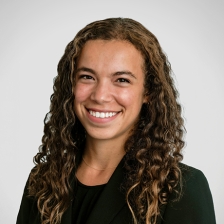
Alijah Futterman ’24
“The Criminal Defense and Reentry Clinic [was] the highlight of my law school experience. The clinic has deepened my thinking about what it means to be an effective advocate inside and outside of the courtroom and has given me practical tools for advocacy.”
Areas of Study
Get a sense of our academic specialties and the faculty that teach them—as well as the centers, colloquia, lectures, and student organizations that underscore them.
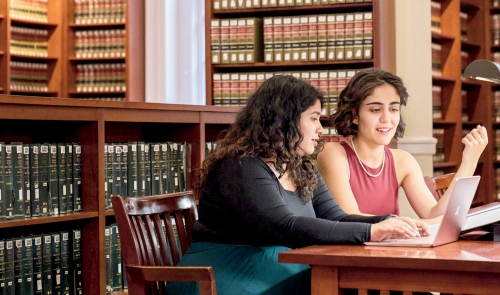
- Antitrust, Intellectual Property, & Information
- Cities & Land Use
- Constitutional, Civil Rights, & Democracy
- Corporate & Commercial Law
- Criminal Justice
- Environmental
- Family, Gender, & Sexuality
- Global & International
- Human Rights
- Immigration
- Labor & Employment
- Law and Security
- Legal Theory, History, & the Social Sciences
- Litigation & Procedure
- Regulation & Public Policy
- Taxation


